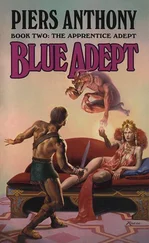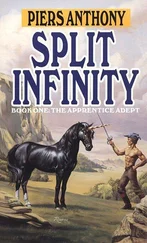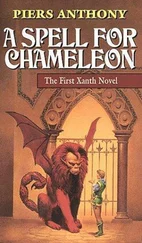Piers Anthony - Chthon
Здесь есть возможность читать онлайн «Piers Anthony - Chthon» весь текст электронной книги совершенно бесплатно (целиком полную версию без сокращений). В некоторых случаях можно слушать аудио, скачать через торрент в формате fb2 и присутствует краткое содержание. Город: 1967, Издательство: Ballantine, Жанр: Фантастика и фэнтези, на английском языке. Описание произведения, (предисловие) а так же отзывы посетителей доступны на портале библиотеки ЛибКат.
- Название:Chthon
- Автор:
- Издательство:Ballantine
- Жанр:
- Год:неизвестен
- Город:1967
- ISBN:нет данных
- Рейтинг книги:5 / 5. Голосов: 1
-
Избранное:Добавить в избранное
- Отзывы:
-
Ваша оценка:
- 100
- 1
- 2
- 3
- 4
- 5
Chthon: краткое содержание, описание и аннотация
Предлагаем к чтению аннотацию, описание, краткое содержание или предисловие (зависит от того, что написал сам автор книги «Chthon»). Если вы не нашли необходимую информацию о книге — напишите в комментариях, мы постараемся отыскать её.
Nominated for the Hugo Award for Best Novel in 1968.
Chthon — читать онлайн бесплатно полную книгу (весь текст) целиком
Ниже представлен текст книги, разбитый по страницам. Система сохранения места последней прочитанной страницы, позволяет с удобством читать онлайн бесплатно книгу «Chthon», без необходимости каждый раз заново искать на чём Вы остановились. Поставьте закладку, и сможете в любой момент перейти на страницу, на которой закончили чтение.
Интервал:
Закладка:
“Understood. By the time you know what I offer, you will be eager to join me. There is time, and I am at your service.” But the grim mystery of the man remained. Aton had no interest in the wealth of Chthon, and had no intention of returning, but could risk neither killing nor deserting Partner until he learned more of the man’s capabilities. Meanwhile, business should be conducted on an innocuous level.
“I’ll buy a planet from you,” Aton said, meaning that he would turn over another garnet for information about its location, and transportation there.
Partner reached for the Sector Index, a volume about the size and texture of Aton’s lost LOE . This covers most of the human sector—two million stars or so. I never charge for public information.”
Aton took the book but did not open it. “I can’t use this.”
“You don’t know Galactic Coordinates? I thought you were a spaceman. That system is pre-§. Centuries old. But there are always the maps.”
“I know the system. But I don’t think the planet I want is listed here.”
“Of course not. These are stars. You have to use the subsector ephemerides for the planetary orbits. But why bother? They’ll message the information to you when you pull into the system.”
“This is a proscribed planet,” Aton said sourly.
Partner looked at him again, pupils momentarily colorless as the lenses shifted. “You do have a problem. You know where we’ll have to go first.”
Aton knew.
Eleven
Earth: home of humanity and of its legends for ten thousand times the time that race had been in space, and more; whose population thrust forth a hundred million human bodies to space in each sidereal year, and did not diminish—until the catastrophic chill imposed de facto quarantine upon the mother world. One month—to wipe out forty per cent of all its inhabitants, to bring the fusion bombs necessary to cremate the mountainous offal in the wake of that brief siege. Even so, Earth retained a population more massive than the rest of its empire combined, and still her lands and seas and atmosphere were crowded with carpets of living flesh.
Not even the chill could solve this problem.
But Earth had power. She was the irrevocable queen of a billion cubic parsecs of space, not through military, economic, or moral force, but through her surpassing knowledge. Here was technology beyond the rustic imagination of the colony worlds. Here was accumulated information of such detail and range that storage and referencing alone usurped the facilities of a small continent. Here was the Sector Library.
Computers organized and sorted the unthinkable complex, delivering any information known to man, to any party, in moments. A man had only to enter a booth and make known his desire.
Unless it was proscribed.
But there were the “stacks”—comprehensive files of printed documentation, of interest to hardly one seeker in a thousand, but sustained by ancient custom in the face of rising opposition. Some year the renewed pressure of population would abolish this monstrous relic. Meanwhile, it endured. Dedicated ancients maintained the archives in leisurely exactitude, and interest was the sole criterion for admission. Earth was after all free, and upheld the right of every person to search for knowledge and to discover as much as determination and ingenuity could provide. And the information was there, all of it—if the seeker could find it. The very awkwardness of the stacks created this advantage: the archives were far too cumbersome to purge selectively. They could not be expurgated.
The stacks occupied cubic miles of space. Never had Aton encountered an enclosure of such dimension: two hundred tiers of long, low hallways, each lined from floor to ceiling on either side with thick volumes, each extending so far into the distance that the walls seemed to meet. At regular intervals right-angled crosswalks cut off segments, making intermittent alternate passages whose staccato lengths also pressed into distant closure. Aton imagined that he could see the ponderous curve of the planet in the level flooring, and that it was the horizon that terminated the halls.
Chthon itself lost its novelty within these passages. Ever did the works of nature, he thought, bow before the works of man.
But how to start? Every volume looked the size of LOE —forty million words of print. Every shelf was tightly packed, with only occasional blanks: three books to the foot, six shelves to the wall, two walls to the hall. A ten-foot section of one hall would contain 360 books—more than fourteen billion words.
Aton was not a rapid reader in either Galactic or English. A solid day of intensive effort would get him through no more than a tiny fraction of a single volume. He would be here for decades, merely finishing what was in sight, no matter how he rushed. If he skimmed, he would run the risk of missing a vital clue.
He began to understand why these files were not restricted. Only by the wildest of blunders could a person come across dangerous information—if he recognized it when he saw it. Only through the computer could the library be used effectively.
Partner, always at his elbow, had been studying him. “You’ve never see a library before?”
“I thought I had.” But there had been librarians who listened to the problem and flounced off to generate a collection of books in some undefined manner. Never—this.
“Accept some advice, then. You do not visit the stacks to read , any more than you go to space to look at a vacuum. You research. You set up coordinates and adjust your course (I’m talking about space at the moment) and ignore what doesn’t concern you. You can’t locate your planet by blind reading here any more than you could do it by looking out the port at sublight to find it in space.
“First you need an index, a library index. You need to locate the specific section of the library you want, then the specific book. Right now you don’t even know where you are, although I thought for a while your wanderings had purpose. Take out a book. Look at it.”
Dumbly, Aton obeyed. “This is an analysis of the Oedipus complex,” he said. “A collection of essays on it.” He paused. “Why, the entire book is filled with alternate interpretations. Forty million—”
“And probably not one of those people really understands it,” Partner said, too sharply. “ We certainly don’t. You let your wandering feet lead you to a section and a book that has no possible relevance to the riddle you have to solve. What did you think you were doing?”
“I suppose it was futile,” Aton said absently. He put the book back, his hand seeming somehow reluctant to let it go.
A melodious chord sounded, surprising him, A colored bulb set between shelves began to flash intermittently. “Pay attention to what you’re doing!” Partner snapped. “That’s the wrong place.”
Aton quickly withdrew the book and found the correct slot. The alarms subsided, but already footsteps beat their heavy tread nearby. Labored breathing paced that sound.
“What’s the matter with you now?”
Aton brought himself under control. “Something—something terrible, just then. A memory.” His face regained its color. “I don’t… seem to be myself, right now.” His whole body was shaking.
A fat, bearded man turned the corner. He wore the emblematic cap of the Sector Library, numbered 14. “Having a little trouble, gentlemen?” There was a curious quality about his accent. Then Aton realized what it was: native Earth English spoken by a man born to it.
“A mistake,” Partner replied. “Sorry to bother you.”
The attendant stayed, obviously not intending to trust any more books to their unsupervised carelessness. He was old, the wrinkles showing through the corpulent mounds of his cheeks, and the backs of his pallid hands were landscapes. “I may help you?”
Читать дальшеИнтервал:
Закладка:
Похожие книги на «Chthon»
Представляем Вашему вниманию похожие книги на «Chthon» списком для выбора. Мы отобрали схожую по названию и смыслу литературу в надежде предоставить читателям больше вариантов отыскать новые, интересные, ещё непрочитанные произведения.
Обсуждение, отзывы о книге «Chthon» и просто собственные мнения читателей. Оставьте ваши комментарии, напишите, что Вы думаете о произведении, его смысле или главных героях. Укажите что конкретно понравилось, а что нет, и почему Вы так считаете.











